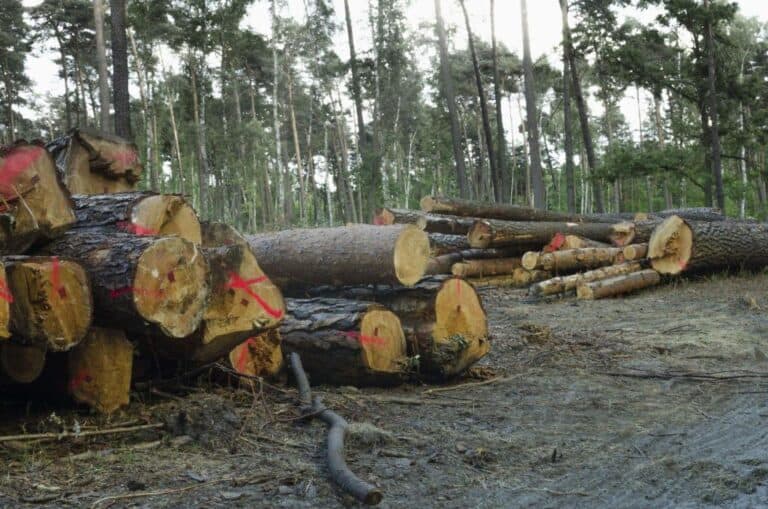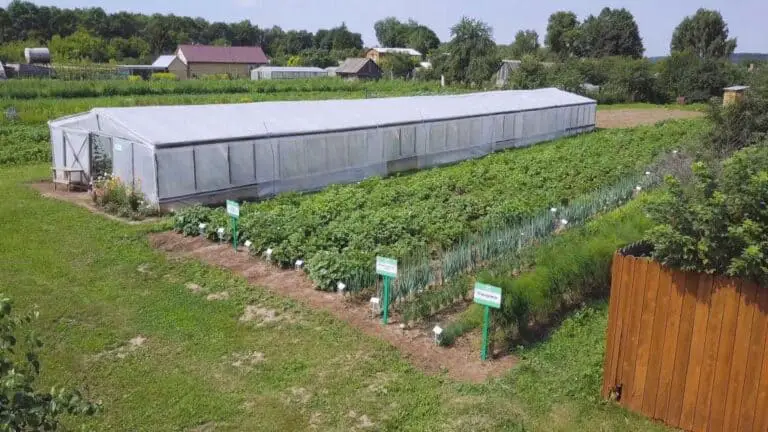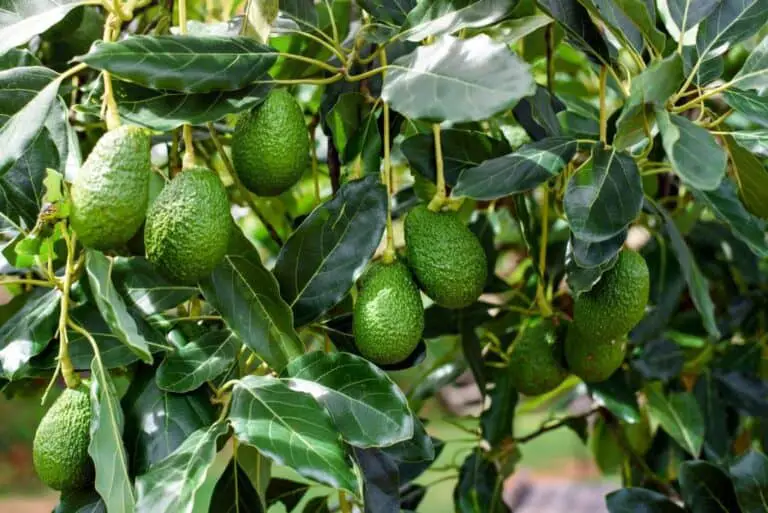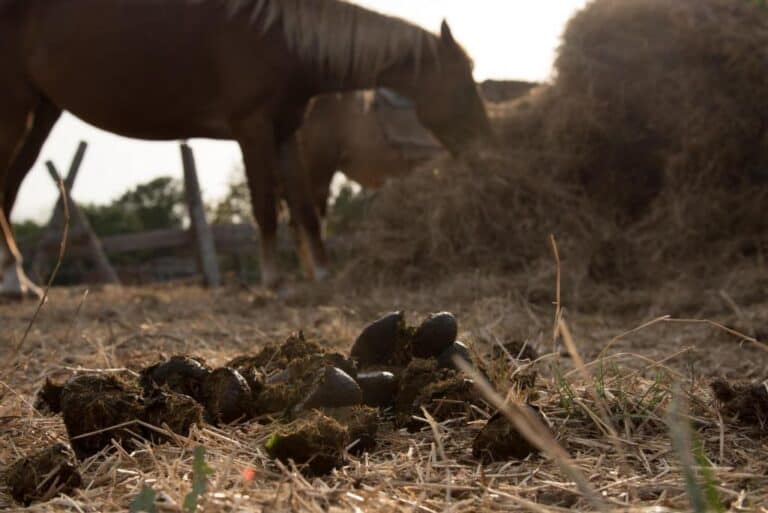Is Wood Ash Good for Fruit Trees? Which Fruit and Vegetables Like It?

Have you ever wondered if there’s a natural, affordable way to boost your fruit trees’ growth and yield? If so, you might be surprised to know that you could be sitting on a goldmine of nutrients in your backyard—wood ash. Yes, that’s right, the powdery residue that’s left behind after burning wood can be a game-changer for your fruit trees.
Wood ash has been used for centuries as a soil amendment, and for good reason. It’s packed with essential minerals like calcium, magnesium, and potassium, which are crucial for plant growth. Plus, it can help balance the pH level of the soil and even control pests and diseases.
But not all plants are created equal, and some are particularly fond of wood ash. If you’re wondering which fruits and vegetables are the biggest fans of this natural fertilizer, you’ve come to the right place.
In this article, we’ll explore the benefits of wood ash for fruit trees, which types of trees and fruits love it, and how to use it effectively in your garden.
Chemical Composition of Wood Ash and Its Effects on Fruit Tree Growth
Wood ash is composed mainly of calcium carbonate, also known as lime, and potassium carbonate. It also contains small amounts of magnesium, phosphorus, and micronutrients such as zinc and copper.
When wood ash is applied to soil, it reacts with water to form potassium hydroxide and calcium hydroxide. These compounds help raise soil pH and provide essential nutrients for fruit tree growth.
However, it’s important to note that wood ash can also contain harmful elements such as heavy metals and toxins. These elements can be present in wood ash if the wood was treated with chemicals or if it came from burned materials such as painted or stained wood.
To ensure the safety of using wood ash as fertilizer, it’s best to use ash from untreated wood that was burned cleanly. You need to avoid using large amounts of wood ash at once, as over-application can lead to excess potassium and elevated soil pH levels.
Benefits of Wood Ash for Fruit Trees
There are several benefits to using wood ash for fruit trees:
1. Provides Nutrients
As mentioned earlier, wood ash is a rich source of minerals such as calcium, potassium, magnesium, and phosphorus. These minerals are essential for the growth and development of fruit trees. They help to strengthen the roots, improve fruit quality, and increase yields.
2. Raises Soil pH
Using wood ash as fertilizer can also help raise soil pH levels. Fruit trees typically prefer a soil pH between 6.0 and 7.0. If the soil pH is too low, fruit trees may not be able to absorb nutrients properly, leading to stunted growth and poor fruit production. Applying wood ash can help raise the soil pH, providing a better growing environment for fruit trees.
3. Controls Pests and Diseases
Wood ash contains compounds that can help repel pests and diseases. For example, it contains potassium salts, which can deter slugs and snails. It also contains calcium, which can help prevent blossom end rot in tomatoes.
Role of Nutrients in Wood Ash for Fruit Tree Health and Productivity
Wood ash contains several important nutrients that can promote fruit tree health and productivity. These nutrients include:
- Potassium: Potassium helps regulate water movement in plants, which is crucial for fruit development.
- Calcium: Calcium is essential for strong cell walls and overall plant structure.
- Magnesium: Magnesium is important for chlorophyll production and energy transfer within plants.
- Phosphorus: Phosphorus is essential for fruit development and overall plant growth.
- Micronutrients: Wood ash also contains small amounts of micronutrients such as zinc and copper, which are important for plant health.
By understanding the role of these nutrients in wood ash, you can make informed decisions about using wood ash as fertilizer for your fruit trees.
Which Fruits and Vegetables Like Wood Ash?
While wood ash can benefit many types of plants, some fruits and vegetables are particularly fond of it. Here are a few examples:
1. Apples
Apples are one of the most popular fruit trees for backyard gardeners, and they can benefit from the addition of wood ash. Apple trees prefer a slightly alkaline soil pH, and the calcium and potassium in wood ash can help improve fruit quality and reduce the risk of disease.
2. Tomatoes
Tomatoes are another crop that can benefit from the addition of wood ash. The calcium in wood ash can help prevent blossom end rot, which is a common problem in tomato plants. It can also help improve soil structure and increase yields.
3. Peppers
Peppers are a popular vegetable for home gardens, and they can also benefit from the addition of wood ash. Peppers prefer a slightly alkaline soil pH, and the potassium and phosphorus in wood ash can help improve fruit quality and increase yields.
4. Blueberries
Blueberries are an acid-loving plant, but they can still benefit from the addition of wood ash. Wood ash can help raise the soil pH to a more neutral level, which can make it easier for blueberries to absorb nutrients. It can also provide a source of potassium, which is essential for healthy fruit production.
5. Potatoes
Potatoes are another crop that can benefit from wood ash. Potatoes prefer a slightly acidic soil pH, but the potassium in wood ash can help improve tuber quality and increase yields.
How to Use Wood Ash for Fruit Trees Properly
If you’ve decided to use wood ash for your fruit trees, here are a few tips to keep in mind:
1. Test Your Soil pH
Before adding wood ash to your soil, you need to test the pH. You can do this with a soil test kit or by sending a soil sample to a lab. This will help you determine how much wood ash to add and whether it’s needed at all.
2. Apply in Moderation
While wood ash can be beneficial for fruit trees, no not to overdo it. Too much wood ash can raise the soil pH too high, which can be harmful to plants. As a general rule, it’s best to apply no more than 20 pounds of wood ash per 1,000 square feet of soil per year.
3. Spread Evenly
When applying wood ash, spread it evenly over the soil. Use a rake or hoe to mix the wood ash into the top layer of soil. Avoid applying wood ash directly to plant roots, as it can burn them.
4. Apply at the Right Time
Wood ash should be applied in the fall or winter, before planting season. This will give it time to break down and integrate into the soil before plants start to grow. Avoid applying wood ash during the growing season, as it can interfere with nutrient uptake.
Other Organic Alternatives to Wood Ash for Fertilizing Fruit Trees
If you prefer not to use wood ash as fertilizer for your fruit trees, there are several organic alternatives you can try. Here are some examples:
- Compost: Compost is a natural fertilizer made from organic materials such as leaves, grass clippings, and kitchen scraps. It’s a great source of nutrients for fruit trees and can help improve soil structure and water retention.
- Manure: Manure from cows, horses, sheep, and chickens can be used as fertilizer for fruit trees. Manure is rich in nutrients such as nitrogen, phosphorus, and potassium, which are essential for healthy fruit tree growth.
- Fish emulsion: Fish emulsion is a liquid fertilizer made from fish waste. It’s a great source of nitrogen and other nutrients that can promote healthy fruit tree growth.
- Bone meal: Bone meal is made from ground-up animal bones and is high in phosphorus, which is essential for fruit development. It can also help improve soil structure and water retention.
These organic alternatives to wood ash can provide many of the same benefits without the potential risks associated with wood ash. However, each of these fertilizers has its own set of advantages and disadvantages, so it’s important to research and choose the best option for your specific fruit trees and soil conditions.
Conclusion
In conclusion, wood ash can be a beneficial fertilizer for fruit trees when used properly. It contains important nutrients such as potassium, calcium, magnesium, and phosphorus and can help raise soil pH levels for optimal fruit tree growth. However, use wood ash sparingly and from clean, untreated wood to avoid potential risks such as elevated soil pH levels and toxins.
If you prefer not to use wood ash as fertilizer for your fruit trees, there are several organic alternatives, such as compost, manure, fish emulsion, and bone meal. Each of these fertilizers has its own set of advantages and disadvantages, so do your own research and choose the best option for your specific fruit trees and soil conditions.
By understanding the role of nutrients in wood ash and how to properly apply it to fruit trees, you can help promote healthy growth and a fruitful harvest.






